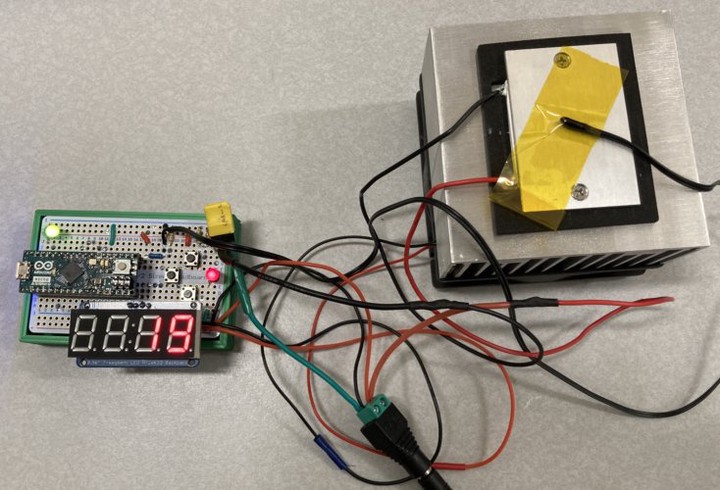 The final sample cooling setup developed in this workshop.
The final sample cooling setup developed in this workshop.Scientific experiments often require that scientists build their own setup. Inexpensive microelectronics, such as Arduino, can furthermore help to automate certain repetitive tasks.
In this workshop, students with a basic understanding of electrical circuits learn how to develop a scientific setup using Arduino. They are introduced to various components step-by-step until the final project, an Arduino controlled sample cooling stage, is fully implemented and working. The notes for the workshop are intended for students to go through them by themselves and do the exercises. In my opinion, a topic such as this one can only be learned by exercises, tinkering, and playing with the components. Therefore, the workshop notes encourage students to do exactly that.
All documents, code solutions, answers to questions, 3d designs, wiring diagrams, etc. of this course, including the LaTeX source files are available on GitHub. All original files are published under the Creative Commons Attribution-NonCommercial-ShareAlike 4.0 International License. A direct link to the lecture note PDF file is also given on top of this page.